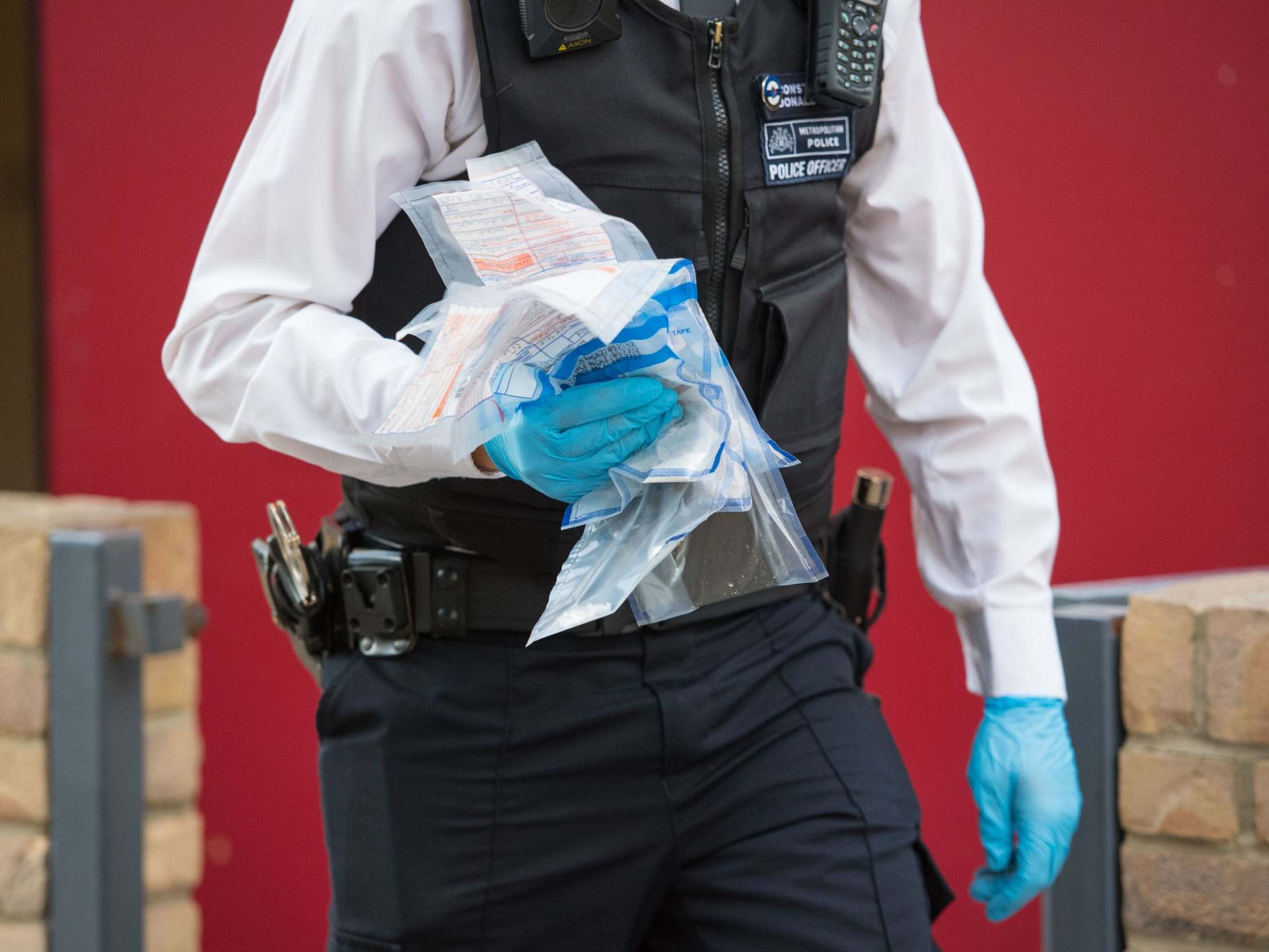‘Disjointed’ policing hampering efforts to tackle county lines exploitation, watchdog finds
Vulnerable children are slipping through the net due to lack of coordination between forces and with other frontline services, warns police inspectorate

Disjointed policing and a lack of coordination between forces are worsening the issue of county lines drugs gangs exploiting children, a government watchdog has warned.
Efforts by police to tackle the criminal practice, which sees youngsters sent by gangs to other areas to distribute drugs, are “too fragmented” and allow too many victims to “slip through the net”, according to Her Majesty’s Inspectorate of Constabulary and Fire and Rescue Services.
The watchdog concluded that a single law enforcement system was needed, operated jointly by police forces and the National Crime Agency, to generate a more efficient and coordinated response to the problem.
Its report described “inconsistency” in the way police forces identify how people involved in county lines are vulnerable to exploitation, and condemned the current structure of policing in England and Wales as a “barrier” to co-ordinating efforts and sharing intelligence between forces.
Former detective Mark Powell, one of the HMIC inspectors who worked on the report, said: “If police are to stand any chance of having the impact they need to have to deal with this type of criminality, they have got to work together more effectively than they do.”
The number of British people identified as modern slavery victims surged by 72 per cent last year, which experts say was likely to be down to the growing number of victims being identified as having been exploited through county lines activity.
In one three-month period last year, 638 children under 18 claimed to be criminally exploited and the majority was because of county lines – 95 per cent higher than the previous year, according to police figures.
There are more than 2,000 individual mobile phone numbers used to buy controlled drugs – known as “deal line” numbers – in the UK, linked to approximately 1,000 county lines, with London, Birmingham and Liverpool being the main exporting areas.
The report found that children excluded from school faced heightened risk of exploitation, and warned of a “cliff edge” situation when victims reach 18 and the support available to them drops. It said joint working between police and public services such as local councils and schools could help to minimise these risks.
The watchdog said there was also an issue with local authorities not always telling the police when they move “at risk” children into their areas, preventing forces from being able to implement strategies and share information effectively.
Mark Russell, chief executive at the Children’s Society, said many children being exploited through county lines were being let down by not only the police but “all agencies”, which he said were “still failing to consistently identify children at risk and share crucial information”.
He added: “Young people too often end up being treated as criminals rather recognised and supported as victims.”
The Inspectorate said there had been calls from some police officers for restrictions on using pay-as-you-go phones anonymously in a bid to cut down on county lines gangs, with people having to register personal details when buying a mobile phone or replacement SIM card to prevent the handsets being used for drug dealing.

Police have already begun a practice of using special powers to request telecommunications companies turn over mobile numbers to their control, enabling them to seize control of drug dealers’ phone numbers and texting their customers.
Responding to the report, the National Police Chiefs’ Council lead for county lines Graham McNulty, acknowledged that there was “room to improve” in the policing response to county lines and said the report outlined some areas that forces were already working towards.
“Police are committed to dismantling violent county lines networks and protecting the young and vulnerable people who are exploited by them but we can’t do it alone. Schools, health and social care services, charities and others have a critical role in ending this evil practice and we will continue to work closely with them,” he added.
Join our commenting forum
Join thought-provoking conversations, follow other Independent readers and see their replies
Comments
Bookmark popover
Removed from bookmarks